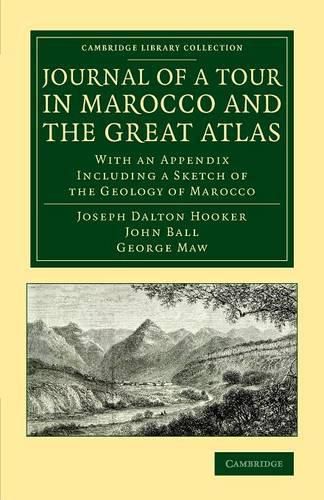Readings Newsletter
Become a Readings Member to make your shopping experience even easier.
Sign in or sign up for free!
You’re not far away from qualifying for FREE standard shipping within Australia
You’ve qualified for FREE standard shipping within Australia
The cart is loading…






This 1878 account of a scientific tour of Morocco and the Atlas mountains in 1871 was compiled from the journals of Sir Joseph Hooker (1817-1911) and his travelling companion, the geologist John Ball (1818-89). Their plan had been for Hooker to publish their findings soon after the journey, but his work as Director of Kew Gardens and President of the Royal Society, and Ball’s frequent absences abroad, as well as his own writing commitments, caused delays. However, they argue that their information is unlikely to be out of date when, from a comparison with earlier accounts, ‘no notable change is apparent during the last two centuries’. The botanical and geological interests of both men take centre stage in an engaging narrative which provides interesting details about the government, customs and daily life in an area which even in the late nineteenth century was little visited by Europeans.
$9.00 standard shipping within Australia
FREE standard shipping within Australia for orders over $100.00
Express & International shipping calculated at checkout
This 1878 account of a scientific tour of Morocco and the Atlas mountains in 1871 was compiled from the journals of Sir Joseph Hooker (1817-1911) and his travelling companion, the geologist John Ball (1818-89). Their plan had been for Hooker to publish their findings soon after the journey, but his work as Director of Kew Gardens and President of the Royal Society, and Ball’s frequent absences abroad, as well as his own writing commitments, caused delays. However, they argue that their information is unlikely to be out of date when, from a comparison with earlier accounts, ‘no notable change is apparent during the last two centuries’. The botanical and geological interests of both men take centre stage in an engaging narrative which provides interesting details about the government, customs and daily life in an area which even in the late nineteenth century was little visited by Europeans.